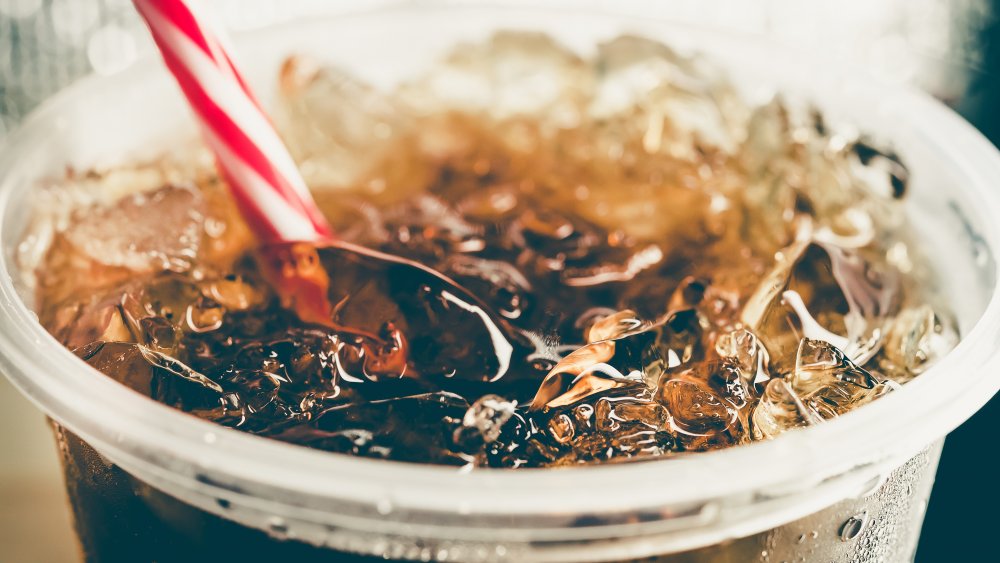This Could Change What You Think About Diet Soda
In recent years, diet soda has come under scrutiny by the health community. Is it really a beneficial switch to convert from the high calories of sugared soda to the artificially-sweetened option? Or are there hidden harms that come with the diet version, and do they perhaps even prevent weight loss?
Overwhelmingly, criticism has centered on the artificial sweeteners that are added to diet sodas to maintain the sweetness of the regular versions. Some scientists postulate that the sweeteners may actually increase appetite by firing up hormones related to hunger, according to Healthline. The theory is that when our body tastes something sweet, it expects calories to follow. Because diet soda offers no calories, and because we're now craving sweetness, we may eat more sweet or high-calorie foods as a response. Over time, this leads to weight gain.
Fake sweeteners have also been associated with insulin resistance and a higher risk of type 2 diabetes, according to the Cleveland Clinic.
The scientific evidence is murky
But the actual science behind these concerns is confusing and contradictory, according to Healthline. For each study claiming to pinpoint a problem with diet soda, there is another that seems to refute it. That may be because the actual amount of artificial sweeteners in diet soda is relatively small, according to The Washington Post.
One example is sucralose, just one of the several artificial-sweetener options. The FDA reports a safe intake level at 5 milligrams per kilogram of your weight. For a 150-pound person, it would be safe to consume 340 milligrams each day, which is equivalent to 28 packets of Splenda, according to The Washington Post. A 12-ounce can of Diet Coke with Splenda contains 40 milligrams of sucralose. Pepsi One also contains 40 milligrams, and Diet Mountain Dew has 18 grams, according to Diabetes Self-Management.
Diet soda has also been linked to high blood pressure and heart disease, but it's important to note that most of the studies done on this were observational, according to Healthline. Because of this, it's possible that people who are already prone to high blood pressure or heart disease due to other factors are drinking more diet soda.
The bottom line is that diet soda, like everything in your diet, is best consumed in moderation. Enjoy it every now and then, but try not to depend on it.


